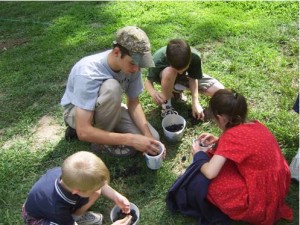
As we have come to the end of the month and our discussions on Teamwork it was gratifying to see the use of teamwork in the families here at our school. Our students really got a special opportunity to display teamwork this week with our brush with Irene, the hurricane.
Some of the parents in the school started using the term Team “Last Name” as they told the stories of their family cleaning up after the storm or dealing in their own way with the inconveniences or even emergencies that they faced in the wake of the storm.
When the students returned to class we gave all the students the opportunity to tell their hurricane story, and reminded them that when they helped with work that needed to be done in or around the house they were practicing teamwork. We also reminded them that every team member has a special skill and or responsibility to fulfill on the team, and how thankful they could be that their parents had kept them safe during this emergency. They could rely on the team, just as the team relied on them.
While having an earthquake and hurricane in the same week was a bit disconcerting, we did get to practice teamwork – and even some of our word of the month in September; Self Reliance.

 How can you contribute with your best? Can you take on greater responsibility on a team? In the family we can train our children to take on different roles as they work on seeing what they are the best at and how to use all of these skills. It may start with simple day to day plans and later as they get older, having them help with vacation plans and other family goals.
How can you contribute with your best? Can you take on greater responsibility on a team? In the family we can train our children to take on different roles as they work on seeing what they are the best at and how to use all of these skills. It may start with simple day to day plans and later as they get older, having them help with vacation plans and other family goals.